News
Arms producers benefitted from Sri Lanka’s 30-year war!
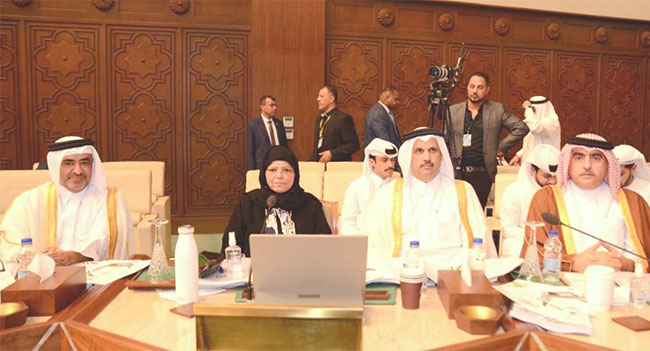
National Shoora Council Biennial Meeting
We are now begging their governments for food and fuel – Zuhair
Six to seven million Sri Lankans are reportedly undergoing tremendous hardship, for their second meal, every day. The 303 Sri Lankans who ended up in Vietnam three weeks ago, rescued by a Japanese vessel from a virtually drowning Myanmar flagged fishing boat, had one distressing message, ‘”take us anywhere but not to Sri Lanka!” This is a damning indictment upon our country. Large numbers of others are leaving the country for good. We all have a national role to play to overcome the crisis.
This was stated by former Member of Parliament, M M Zuhair, PC, who was the guest speaker at the biennial meeting of the National Shoora Consultative Council (NSC), on Sunday, presided by NSC President, T K Azoor, Attorney-at-Law. NSC is the consultative body, comprising 14 Muslim national level organisations in the country.
Speaking further, Zuhair said, the people of this country had been in search for peace and tranquility, since independence, 75 years ago, but they never found them. We neglected focusing on economic development, with dangerous consequences.
Within the first 10 years after, independence, the country was embroiled in the first notable racial riots, in 1956. In 1958, the second such riots engulfed a major part of the country. In 1962, we saw the attempted coup to topple the government, blamed on a powerful minority. In 1971, and again in 1989, the country witnessed a youth uprising, primarily from the majority community. In 1979, an uprising in the North, followed by the major islandwide 1983 July racial riots put the LTTE on top, becoming Sri Lanka’s formidable foe, aiming to establish a separatist State.
The war, launched in 1979, to suppress the uprising in the North, armed with the notorious Prevention of Terrorism Act, instead of containing terror, helped to multiply terrorism in the country. There was no dialogue between the elder brother and the younger one. The globally shamed 1983 riots laid the foundation for war. The 1984 All Party conference (APC) and the 1985 Political Parties Conference (PPC) came too late. They were mere eye wash!
Who benefitted from the war between the brothers? Arms manufacturers in the USA, USSR, Britain, France, Germany, Israel and China were the beneficiaries, though we must blame ourselves for it. The country’s wealth, savings and the dollars ended up in foreign countries for the next 30 years. Today we are pleading with those governments, with the begging bowl, for food and fuel, for the survival of our people.
With the end of the war, in 2009, we missed another golden opportunity to unite the people, at least for the sake of the country’s economic revival. The unity of the people, and the communities, was severely dented by allowing anti-minority attacks against the Christians and the Muslims. Muslims were, thereafter, more specifically targeted with wild allegations about Halal Food, Women’s attire, population canards, discriminatory birth control allegations etcetra!
All these culminated in several anti-Muslim riots, in 2014, 2017, 2018, with over 18 Mosques being attacked, prior to the reprehensible damaging of Buddha Statues, in December 2018, and the widely condemned Easter Sunday attacks of April 2019. Both these acts of Muslim violence were not aimed at toppling any elected government but, on the contrary, governments allegedly benefitted. They do not come anywhere near any act of treason, though the Easter suspects are being treated much worse.
All these came upon a community that ought to be placed first in national patriotism but for the false propaganda by vested interests in sections of the media. Historian Dr Lorna Dewaraja says that 900 years ago, during the reign of King Parakramabahu, a significant contribution, for building the Parakrama Samudra, came from the Arab descendent Muslims of Sri Lanka. Since then, the patriotic role of the Sri Lankan Muslims, in the progress and development of the country, for over a thousand years, has been recorded by Dr Dewaraja.
It is in this background that the NSC should continue to guide the community, and the country, to play this historical role at this time of distress. NSC, Zuhair said, should resist attempts to divide the majority from the minority communities. We have several issues the NSC should address, such as the proscription of some Muslim civil organisations, in violation of the constitutional protections, proposed rehabilitation without judicial determination, State interferences in Mosque administration, discriminatory restriction in importing Islamic books, North-East Merger, the proposed abolition of Quazi Courts, etc. We need to resolve these problems expeditiously.
News
Colombo Metropolitan Region, Eastern Development Plan and the Greater Hambantota Project discussed in detail
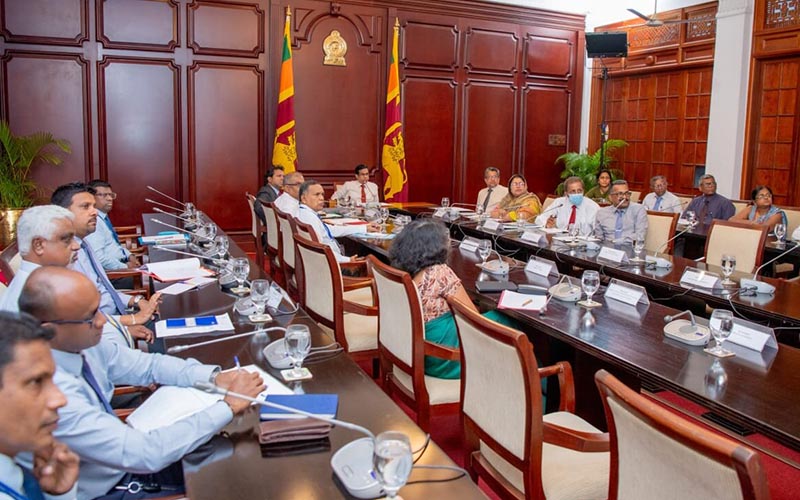
A meeting between Secretary to the President, Dr. Nandika Sanath Kumanayake and relevant ministry officials was held on Tuesday (08) at the Presidential Secretariat regarding the development plans to be implemented in Sri Lanka under three zones, in collaboration with the Surbana Jurong Institute of Singapore and 18 Ministries.
During the meeting it was discussed in detail regarding the plans for the Colombo Metropolitan Region, Eastern Development Plan and the Greater Hambantota Project. The officials from Singapore-based urban planning and infrastructure consultancy Surbana Jurong also joined the discussion virtually.
Progress reports on the three projects were reviewed in detail and Dr. Kumanayake instructed the officials to identify any deficiencies and finalize the necessary actions within the next two weeks.
The discussion also addressed delays in securing necessary approvals for investments under the existing regulatory framework, as well as the urgent need to revise certain legislative instruments to better facilitate national development.
The meeting was attended by Secretary to the Prime Minister G.P. Saputhanthri, Senior Additional Secretary to the President Russel Aponsu, Secretary to the Ministry of Urban Development, Construction and Housing U.G. Ranjith Ariyaratne, and several senior officials from the respective ministries.
News
Heat index at ‘Caution level’ in Northern, North-central, Eastern, North-western, Western provinces and Monaragala district today [09]
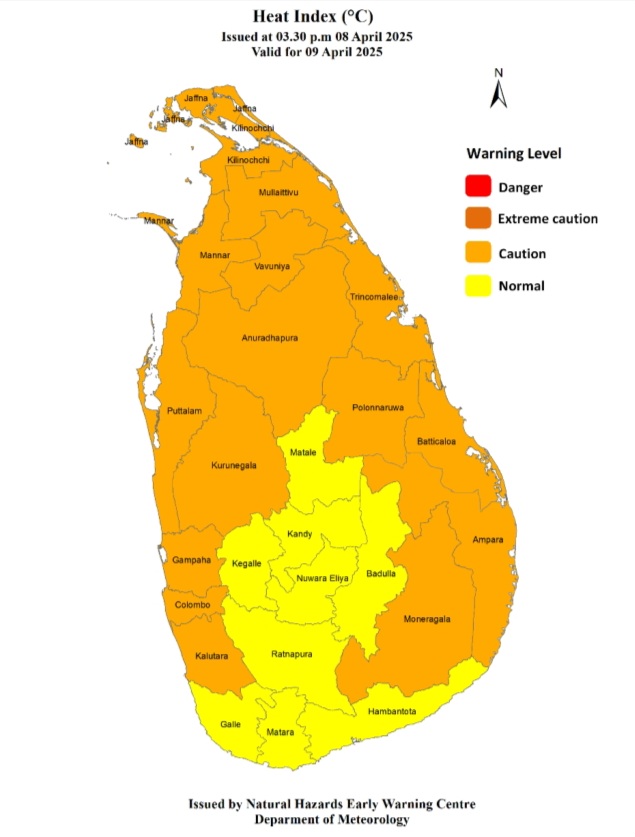
The Natural Hazards Early Warning Centre of the Department of Meteorology has issued a Warm Weather Advisory for 09 April 2025
The public are warned that the Heat index, the temperature felt on human body is likely to increase up to ‘Caution level’ at some places in Northern, North-central, Eastern, North-western, and Western provinces and in Monaragala district.
The Heat Index Forecast is calculated by using relative humidity and maximum temperature and this is the condition that is felt on your body. This is not the forecast of maximum temperature. It is generated by the Department of Meteorology for the next day period and prepared by using global numerical weather prediction model data.
Effect of the heat index on human body is mentioned below is prepared on the advice of the Ministry of Health and Indigenous Medical Services.
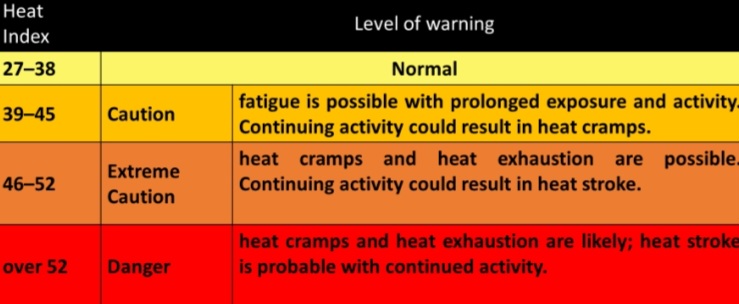
ACTION REQUIRED
Job sites: Stay hydrated and takes breaks in the shade as often as possible.
Indoors: Check up on the elderly and the sick.
Vehicles: Never leave children unattended.
Outdoors: Limit strenuous outdoor activities, find shade and stay hydrated. Dress: Wear lightweight and white or light-colored clothing.
Note:
In addition, please refer to advisories issued by the Disaster Preparedness & Response Division, Ministry of Health in this regard as well. For further clarifications please contact 011-7446491.
News
Sajith asks govt. to submit its MoUs with India to Parliament
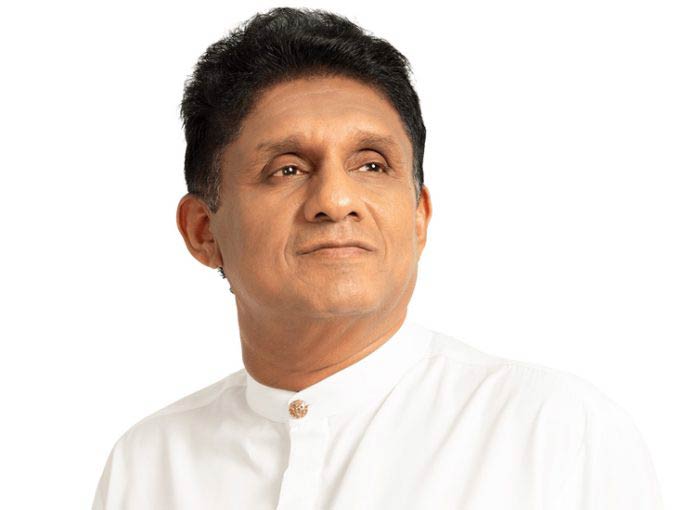
Prof. Jayasumana raises possibility of Lanka ending up with “Quad’
Opposition and SJB Leader Sajith Premadasa has said it is the responsibility of the NPP government to submit the MoUs/agreements that were recently signed with India to the respective Sectoral Oversight Committees (SOCs).
Premadasa said so when The Island raised the issue with him. He said that during his meeting with Premier Modi his focus had been on opening the Indian market for Sri Lankan garment exports.
The seven MoUs/agreements signed on 05 April included defence cooperation, energy, Eastern Province development and digitalisation.
Meanwhile, the Vice President of Sarvajana Balaya and former lawmaker Prof. Channa Jayasumana said that the government owed an explanation whether the recently signed MoU on defence cooperation directly or indirectly attached Sri Lanka to the Quad security alliance, consisting of the US, Australia, Japan and India.
 The former SLPPer raised the issue at a meeting held at Boralesgamuwa on Monday (07) in support of Sarvajana Balaya candidates contesting the May 6 LG polls.
The former SLPPer raised the issue at a meeting held at Boralesgamuwa on Monday (07) in support of Sarvajana Balaya candidates contesting the May 6 LG polls.
Prof. Jayasumana urged that the MoU on Defence Cooperation be placed before Parliament, and the people, without further delay. The academic who served as State Health Minister during President Gotabaya Rajapaksa’s tenure said that President Anura Kumara Dissanayake’s foreign policy direction should be dealt with.
By Shamindra Ferdinando
-

 Business2 days ago
Business2 days agoColombo Coffee wins coveted management awards
-

 Business4 days ago
Business4 days agoDaraz Sri Lanka ushers in the New Year with 4.4 Avurudu Wasi Pro Max – Sri Lanka’s biggest online Avurudu sale
-

 Features3 days ago
Features3 days agoStarlink in the Global South
-

 Business5 days ago
Business5 days agoStrengthening SDG integration into provincial planning and development process
-

 Business4 days ago
Business4 days agoNew SL Sovereign Bonds win foreign investor confidence
-

 Sports6 days ago
Sports6 days agoTo play or not to play is Richmond’s decision
-

 Features3 days ago
Features3 days agoModi’s Sri Lanka Sojourn
-

 Sports5 days ago
Sports5 days agoNew Zealand under 85kg rugby team set for historic tour of Sri Lanka











